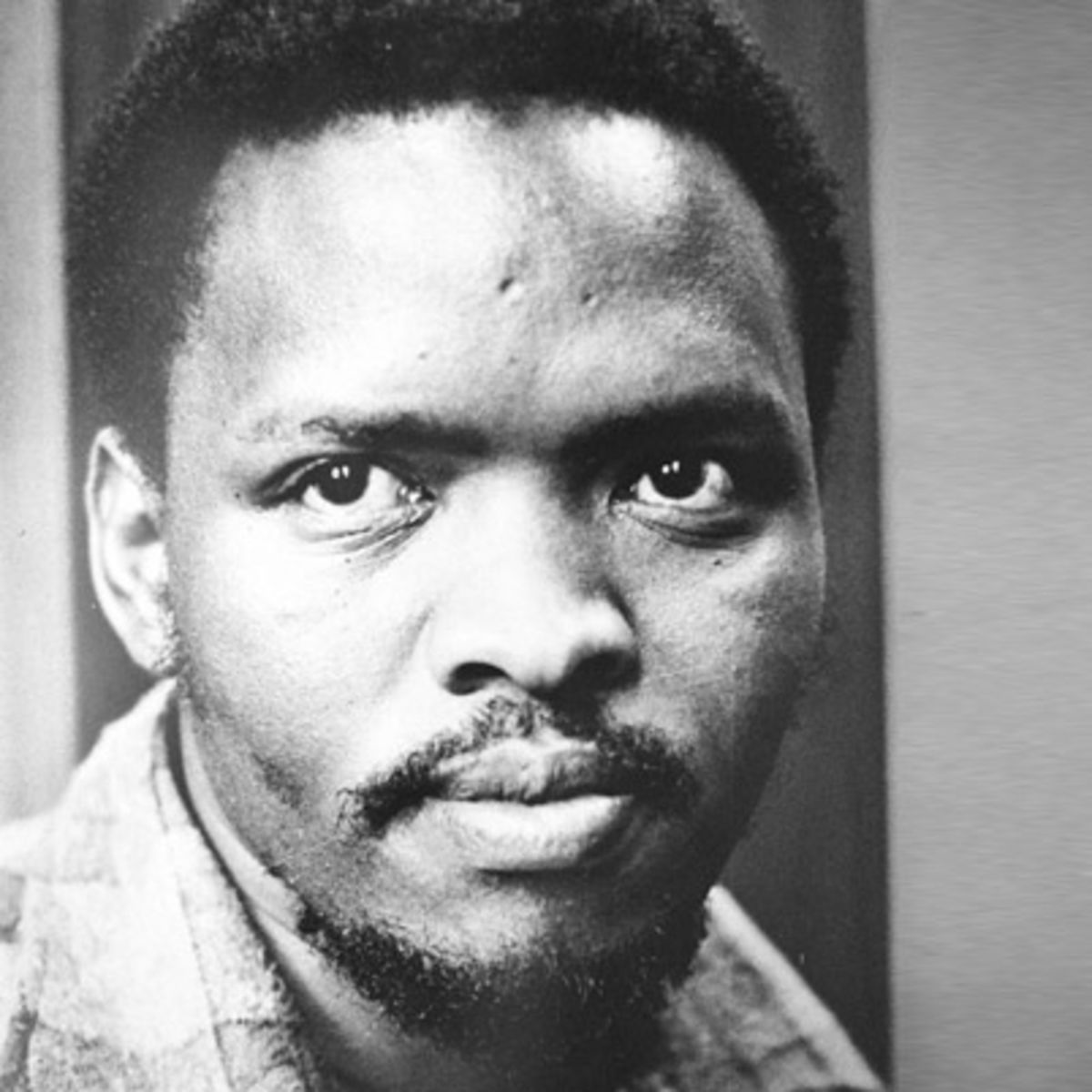Steve Biko: Citáty v angličtine
“It is better to die for an idea that will live, than to live for an idea that will die.”
Quoted in Scott MacLeod, "South Africa: Extremes in Black and Whites" http://www.time.com/time/magazine/article/0,9171,975037,00.html, Time, March 9, 1992, p. 38
Quoted in "The Mind of Black Africa" (1996) by Dickson A. Mungazi, p. 159
The Quest for a True Humanity
I Write What I Like (1978)
“This is the extent to which the process of dehumanization has advanced.”
We Blacks
I Write What I Like (1978)
Kontext: The logic behind white domination is to prepare the black man for the subservient role in this country. Not so long ago this used to be freely said in parliament, even about the educational system of the black people. It is still said even today, although in a much more sophisticated language. To a large extent the evil-doers have succeeded in producing at the output end of their machine a kind of black man who is man only in form. This is the extent to which the process of dehumanization has advanced.
“Apartheid — both petty and grand — is obviously evil.”
We Blacks
I Write What I Like (1978)
Kontext: Apartheid — both petty and grand — is obviously evil. Nothing can justify the arrogant assumption that a clique of foreigners has the right to decide on the lives of a majority.
Statement quoted in the Boston Globe (25 October 1977)
Kontext: Even today, we are still accused of racism. This is a mistake. We know that all interracial groups in South Africa are relationships in which whites are superior, blacks inferior. So as a prelude whites must be made to realize that they are only human, not superior. Same with blacks. They must be made to realize that they are also human, not inferior.
“The most potent weapon in the hands of the oppressor is the mind of the oppressed.”
White Racism and Black Consciousness
I Write What I Like (1978)
Varianta: The greatest weapon in the hand of the oppressor is the mind of the oppressed.
White Racism and Black Consciousness
I Write What I Like (1978)
“We must realise that prophetic cry of black students: "Black man you are on your own!"”
The Quest for a True Humanity
I Write What I Like (1978)
Statement quoted in the Boston Globe (25 October 1977)
